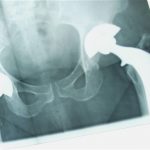Thousands of patients could avoid the need for a hip replacement after surgeons pioneered a new stem cell procedure to tackle a bone disease that leads to arthritis.
Doctors at Southampton General Hospital are extracting stem cells from the bone marrow of patients in need of hip repair due to osteonecrosis – a condition where poor blood supply causes significant bone damage leading to severe arthritis.
These cells are mixed with cleaned, crushed bone from another patient who has had their own hip replaced and used to fill the hole made by surgeons after dead and damaged tissue has been removed from the joint.
“Although this work is still ongoing, several patients who have had the procedure have reacted very well and, if we get the results we are hoping for, these patients won’t need to have their hip joints replaced – they should be fixed completely,” said Mr Dunlop.
Professor Oreffo added: “By using stem cells to send out chemical signals to blood vessels, we hope the body will continue to create new vessels in the hip which supply enough nutrients to maintain bone strength.”
Osteonecrosis is on the rise in the UK with around 4,000 cases a year but it is much more widespread in Asia where it is the most common form of arthritis of the hip, a spokesman for the hospital said.
It can also be treated with drugs to help avoid arthritis and usually strikes between 30 and 50 years of age.
Osteonecrosis is a disease that results from the temporary or permanent loss of blood flow to bones.
This causes the bones to ‘die’ and ultimately leads to severe arthritis. If the osteonecrosis occurs at the bone joint, it can cause it to collapse and the only option then is a hip replacement.
Common oesteoarthrits is caused by wear and tear of the bone.
Written by: By Rebecca Smith, Medical of www.telegraph.co.uk






